
Enhancing Student Outcomes and Teacher Practice through Math Mastery: A Comprehensive Study Tour and Curriculum Framework Development.
As a primary school teacher with ten years of classroom experience, I’ve had the opportunity to teach across year levels from Prep to Year 3. Throughout my teaching journey, I’ve developed a strong passion for ensuring that every student feels a sense of success in the classroom and equally, that every teacher feels confident and equipped to deliver high-quality lessons. Over time, I’ve become increasingly interested in how we can bring greater consistency and clarity to the way we teach mathematics across the early years.
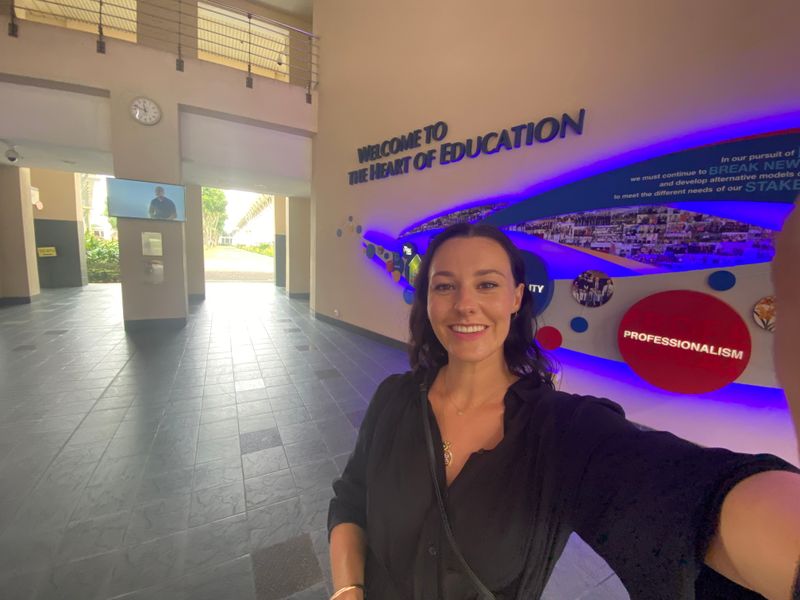
In 2024, I was fortunate to be awarded the inaugural Toowoomba Grammar School Teaching Fellowship to explore this interest more. My proposal, titled Enhancing Student Outcomes and Teacher Practice through Math Mastery: A Comprehensive Study Tour and Curriculum Framework Development, focused on investigating how the Math Mastery approach could strengthen both student understanding and teacher instruction in mathematics. This opportunity took me to Singapore to investigate the Math Mastery approach - an internationally recognised model of mathematics instruction that supports every student to achieve deep understanding through carefully sequenced, explicit teaching.
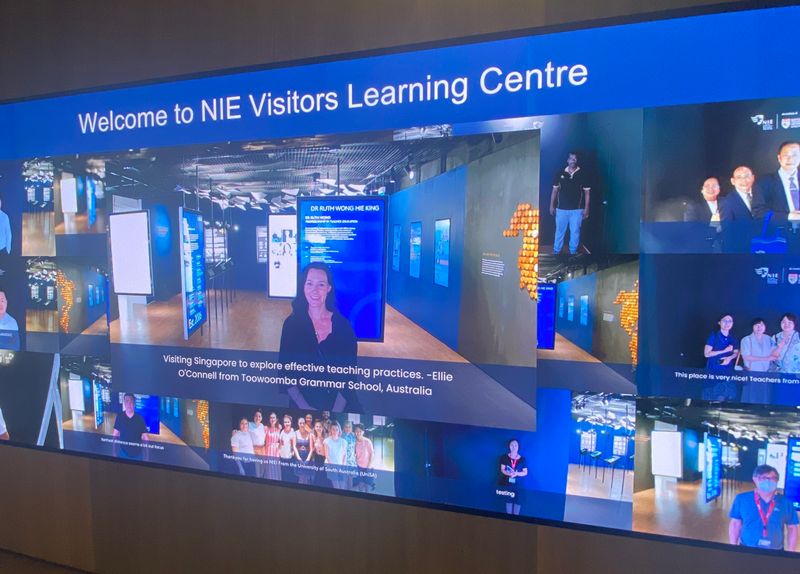
Why Mathematics? Why Now?
Across Australia, there is growing national concern about the long-term decline in mathematics achievement. Reports such as the Gonski Review (2018) highlight that many students are not mastering the basic skills needed for future learning, and that teachers need more explicit, structured tools to support all learners. In the early years of schooling—where concepts are first introduced, and mathematical mindsets are formed—it’s crucial that instruction is clear, consistent and effective. Gaps in understanding at this stage can have long-lasting effects on a child’s confidence and progress. The fellowship was an opportunity to examine international best practices and bring back evidence-informed strategies that could enhance both student outcomes and teacher practice in our own School.
Learning from Singapore: Schools and Insights
During my study tour in Singapore, I visited two leading international schools: Dulwich College and Invictus International School. Both schools use mastery-based approaches to mathematics, with structured, well-sequenced programs designed to develop deep conceptual understanding. At Dulwich College I observed math lessons from Years 1 to 5 that emphasised both mastery and practical application. The classrooms fostered a calm, focused learning environment in which teachers guided students through new concepts using clear, structured instruction, ensuring mastery through modelling, guided practice and checking for understanding before progressing. I also engaged in discussions with the school’s mathematics leadership team, who shared their planning processes and how they support teachers to differentiate within whole-class teaching.
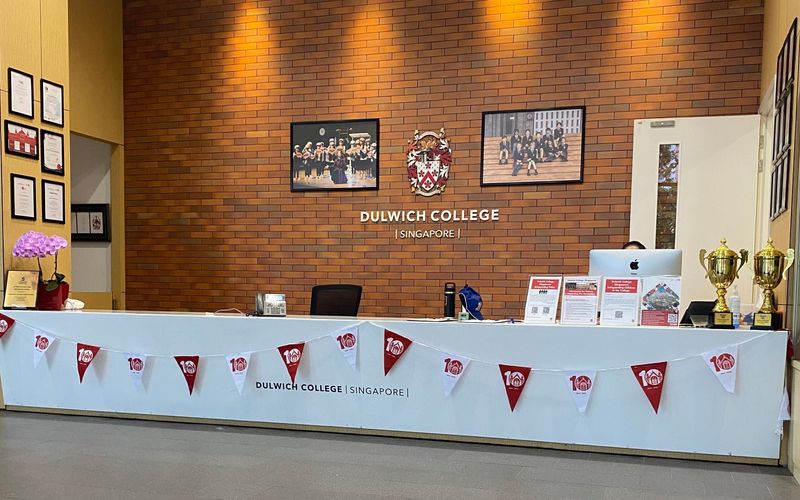
Invictus International School offered a contrasting yet equally valuable perspective. With a diverse cohort of learners and a flexible curriculum model, their team demonstrated how mastery principles can be embedded in a range of contexts. I also had the opportunity to meet with local educational consultants and curriculum developers, who offered insights into how Singapore’s national curriculum supports cumulative learning, daily review and concept mastery from the early years onwards.
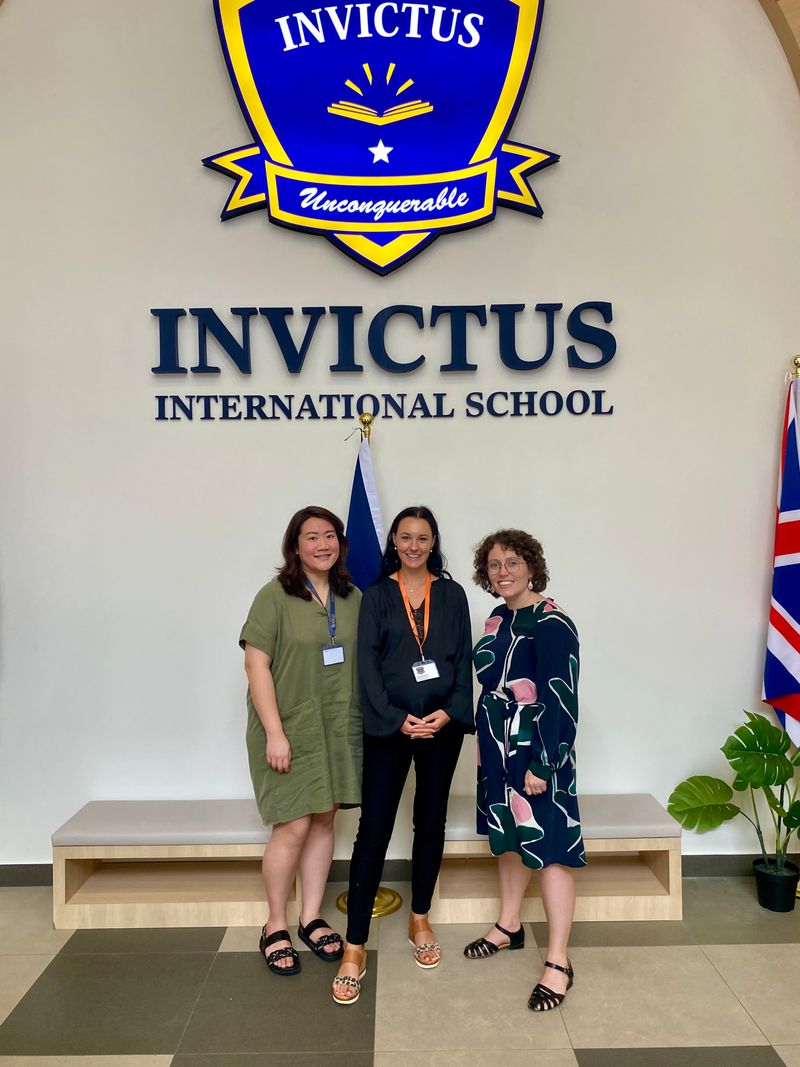
Key Findings: What Makes Mastery Work?
My observations confirmed the power of structured, explicit teaching in building strong foundations in mathematics. These were the key elements that stood out across all settings:
- Clear Learning Objectives
Teachers clearly define what students need to know and be able to do at the end of each unit or lesson.
- Whole-Class Instruction with Embedded Differentiation
Rather than streaming students by ability, mastery classrooms taught concepts to the whole class while using questioning, scaffolding and targeted support to meet individual needs.
- Corrective Instruction
Students who don't achieve mastery receive additional instruction or support to address knowledge gaps.
- Cumulative, Carefully Sequenced Learning
Each lesson built directly on the last, with time allocated for review and consolidation. This ensured that no student was left behind and that concepts were truly understood before new material was introduced.
- Mathematical Language and Reasoning
Teachers modelled precise vocabulary and encouraged students to explain their thinking. This supported deeper reasoning and helped students internalise core concepts.
- Learning Routines
Clear instructional routines and behaviours are established in every classroom, reinforcing expectations and supporting learning.
- Lesson Resources
Hands-on materials and visual examples are carefully chosen to help students connect with new concepts in ways that suit their learning needs.
- Fluency
Essential number facts are practised until automatic, helping students reduce cognitive load, enhancing students’ ability to focus on new and more complex ideas.
- Calm, Confident Learners
Most powerfully, students appeared confident, focused and proud of their mathematical thinking. The clear structure and shared learning journey contributed to a positive and inclusive classroom culture.
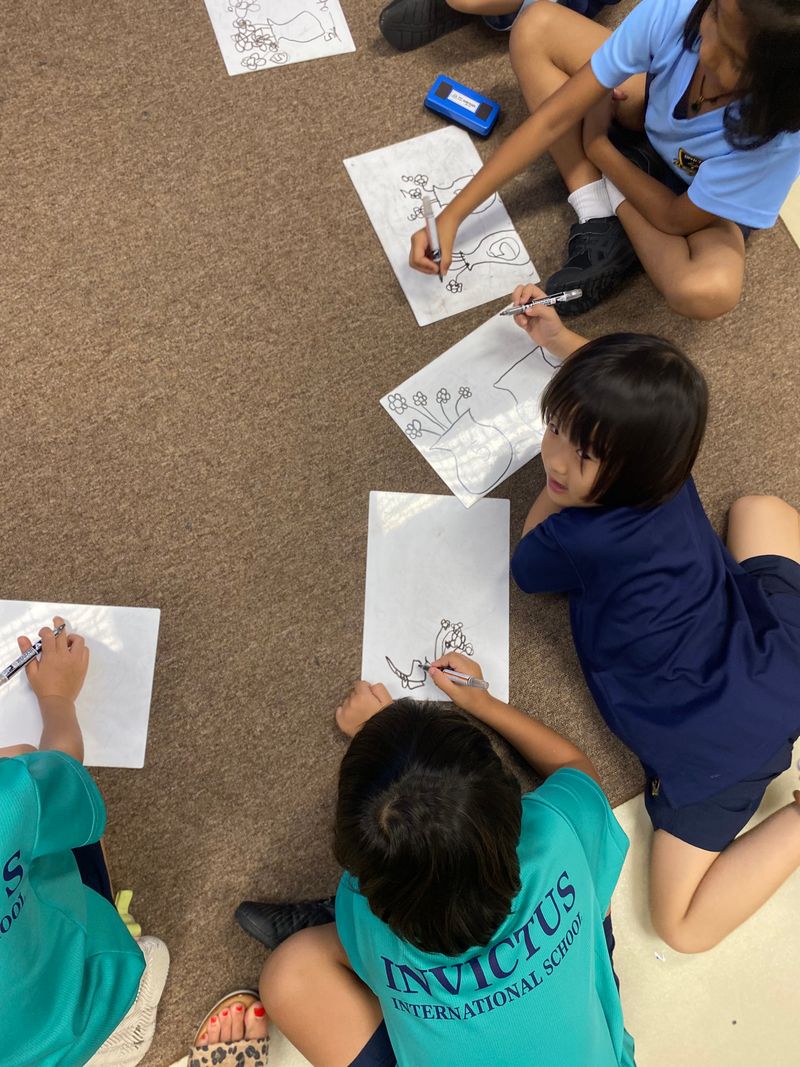
Global Perspective: Insights from Kinder World School
As a part of my research, I was able to engage in a conversation with Peter Baker, Principal Supervisor of 13 KinderWorld International Schools across Vietnam, I was able to dive deeper into how the Math Mastery approach works in large, diverse educational settings. These schools have adopted the Singapore Math model, a mastery-based framework built around explicit teaching and cumulative learning - many of the same principles I explored during my study tour.
Peter shared that their decision to adopt this approach was driven by a need for a consistent, evidence-based program that teachers could pick up quickly, deliver confidently and implement cost-effectively. “We started the explicit teaching model a couple of years back,” he explained. “We call it the KinderWorld Model. Retrieval practice to strengthen knowledge and problem-based application of learning is also included. I think it certainly makes a difference.”
What stood out to me in our discussion was just how closely their journey mirrors our own at TGS. We have already embedded strong practices in literacy through well-structured, whole-school programs that align with explicit teaching and the science of learning. However, mathematics remains an area where we see room for greater consistency and greater gains.
While our data confirms that we continue to perform above the state average in mathematics, recent NAPLAN results highlight a national decline in numeracy - a trend that we are aiming to avoid in our own School’s results. While we continue to do well, we have an opportunity and a responsibility to do even better for our boys. This is not just a local issue. In 2015, the Office of the Chief Scientist collaborated with ACARA to examine schools across Australia that had made significant improvements in numeracy over two years. Their report found that mastery-oriented environments were a consistent feature in high-performing schools (Smith et al., 2028).
When I asked Peter how the performance of his students compared to their peers in Australia, his response was compelling:
“We’ve had feedback from parents - many of whom are teachers - saying that when their children return to Australia, they are at least one to two years ahead in mathematics compared to their peers at home.”
This reinforces what global research has been saying for some time: structured, explicit, mastery-based teaching works. And more importantly, it works for all learners - not just the confident few.
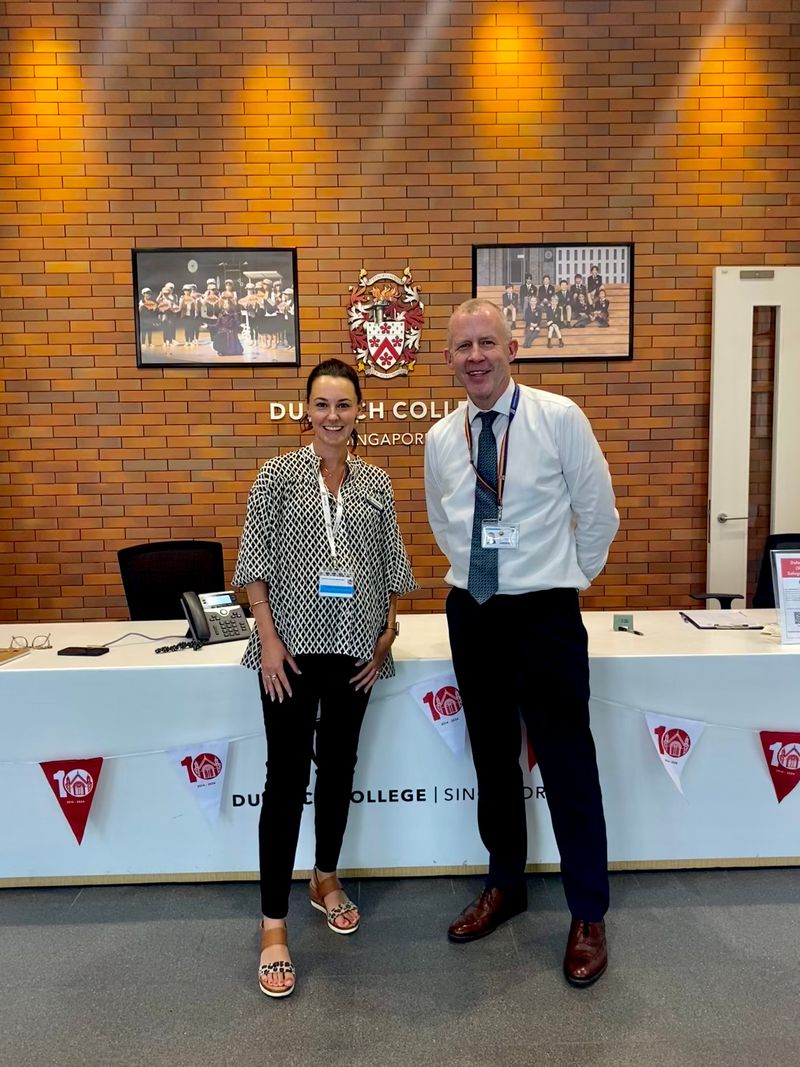
Bringing It Home: What’s Next for TGS?
I’m incredibly grateful for the opportunity this fellowship has provided - not only in shaping and deepening my own practice, but in contributing to a broader, shared vision for mathematics at TGS. This experience reinforced my belief that every student can succeed in mathematics when we give them the right tools, time and teaching. We are now laying the foundations for a clear and united approach to numeracy, one that will equip every boy with the confidence and skills to succeed - not just in the classroom, but throughout their schooling and beyond. And just as importantly, we’re building a community of confident teachers who are equipped to deliver lessons that are clear, consistent and deeply impactful.
I would like to sincerely thank Dr John Kinniburgh for granting me the opportunity to undertake this Fellowship. His support and encouragement throughout the process has been instrumental, and I am truly grateful for his guidance and mentorship. Dr Kinniburgh’s commitment to prioritising high-quality professional development for staff continues to shape a culture of growth and excellence in teaching and learning at TGS.
Latest Blog
Introducing Gabe Robbie, the new Head of Curriculum
I am excited to be joining the staff here at Toowoomba Grammar School in the role of Head of Curriculum. I grew up in a small coastal town in NSW and attended the University of Sydney to complete my undergraduate degree. Please don’t hold my NSW origin against me (Go Blues!). Teaching, and education, has always been a passion of mine and ever since I was in high school, the plan was to be a teacher. I graduated from the University of Sydney with a double degree in Education and Arts, majoring…
What Old Boys Have Contributed to TGS Over Time
The Old Boys’ Association has played an integral role in the history and tradition of Toowoomba Grammar School. It was formed on December 29, 1888, when 25 Toowoomba Grammar School Old Boys met at Long’s Imperial Hotel to create a new society. The Toowoomba Grammar School Old Boys’ Association rules were drawn up, and office-bearers elected. The inaugural president was Mr Joesph Vincent Herbert Esq. (TGS 1877-80) From there, the TGSOBA has grown significantly, ensuring that the Blue and Gold…
TGS Strength and Conditioning Program
Toowoomba Grammar School has a unique approach to athlete development that focuses on providing students with the skills, tools and mindset required to succeed in sports and life. At TGS, the long-term athlete development (LTAD) philosophy is ingrained in every aspect of the School's approach to sport and fitness. The LTAD philosophy emphasises the importance of age-appropriate training and skill development over a long period of time. This approach recognises that athlete development is a…
We Knew Them Before They Were Stars
Our boys at Toowoomba Grammar School are fortunate that Performing Arts is as popular as sport and academics, thanks to our culture of respect and inclusivity. Boys are supported and encouraged to immerse themselves in music, drama and art and are not afraid to chase their dreams in these fields. The success of our performing arts students dates back decades, with our Old Boys performing all around the world in theatre, music, film and photography and are accomplished and well recognised in…
Country Roads Take Me Home
Toowoomba Grammar School boarding provides the ideal living environment for our boys while they develop the values that will define their character. Throughout the course of this year, I have been privileged to visit many of the towns and properties that our TGS boarders call home. When walking around those towns wearing a shirt with a TGS crest, it doesn’t take long to meet an Old Boy or to be asked about one of the boarders currently at the School. Our boarding staff pride themselves on…
TGS Corfe House - A Home for Young Boarders
In Toowoomba Grammar School’s Boarding Program, Years 5 to 7 students reside at Corfe House – a nurturing environment providing close pastoral support and guidance to the School’s youngest boarders. The skills, relationships and perspectives that boys develop here set them up for the rest of their boarding and school journey. Toowoomba Grammar School understands the challenges for young students transitioning into boarding. Leading the way in creating a ‘home away from home’ is the Corfe House…
TGS Mates Program - Character Building Education
Current research into character education has shown that educators should not be focusing solely on preparing students for their Year 12 final exams but should be supporting them to become humans who exhibit good character and virtues to contribute to creating a healthier society (The Jubilee Centre, 2022). The Jubilee Centre, which is attached to the University of Birmingham in the UK, maintains that good character is the foundation for improved attainment, better behaviour, increased…
Our TGS Old Boys' Wall of Achievement
The next time you visit the School grounds, pause for a moment at the Toowoomba Grammar School Old Boys' Wall of Achievement. This concept was the initiative of the then Deputy Headmaster, Mr Roger Buttenshaw, and was supported by the Board of Trustees, Headmasters Mr Hugh Rose and Mr Peter Hauser, and the TGSOBA - Toowoomba Grammar School Old Boys' Association. The opening of the Wall of Achievement took place in 2003. Thousands of TGS Old Boys have gone on to lead productive and valuable…
A Musical Reflection
As Director of Performing Arts, there is perhaps no bigger undertaking than a School musical. It requires an enormous effort from a huge team of teachers and students, and to get all these moving parts heading in the same direction is certainly no mean feat. The 2023 co-production of Footloose was my first time involved in a Toowoomba Grammar School and Fairholme College musical, and I found it to be a very rewarding, though exhausting, experience. The process began in Term 3, 2022, as my…